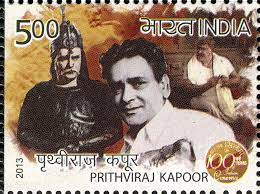Prithvi Theatre was established by the legendary actor Prithviraj Kapoor in Mumbai, India. The theater was inaugurated on 05 November 1944. Prithviraj Kapoor, along with his wife, Jennifer Kapoor, played a crucial role in founding and promoting the theater.
Key points about Prithvi Theatre:
Founder: Prithviraj Kapoor, a pioneering figure in Indian theater and cinema, founded Prithvi Theatre.
Objective: The primary objective of establishing Prithvi Theatre was to provide a platform for promoting and nurturing Indian theatre and performing arts. Prithviraj Kapoor aimed to create a space for the exploration of diverse forms of dramatic arts.
Location: Prithvi Theatre is located in Juhu, Mumbai, and has become a cultural landmark in the city.
Prithvi Festival: The Prithvi Theatre Festival, organized annually, has gained prominence as one of the most significant cultural events in Mumbai. The festival features a diverse range of performances, including plays, music, dance, and other artistic expressions.
Legacy: Prithvi Theatre has played a crucial role in shaping the Indian theater scene. It has been a hub for both established and emerging artists, providing a platform for experimentation and creative expression.
Prithviraj Kapoor's Contribution: Prithviraj Kapoor, a celebrated actor of his time and patriarch of the Kapoor acting dynasty, dedicated much of his life to the promotion of theater and the performing arts. His vision and efforts have left a lasting legacy through Prithvi Theatre.
Continuation by the Kapoor Family: After Prithviraj Kapoor's passing, his wife Jennifer Kapoor and later his children, Shashi Kapoor, Jennifer Kendal, and Prithviraj Kapoor's grandchildren, continued to manage and contribute to Prithvi Theatre.
Today, Prithvi Theatre remains an active and vibrant cultural center, continuing its commitment to the promotion and celebration of the performing arts in India.









